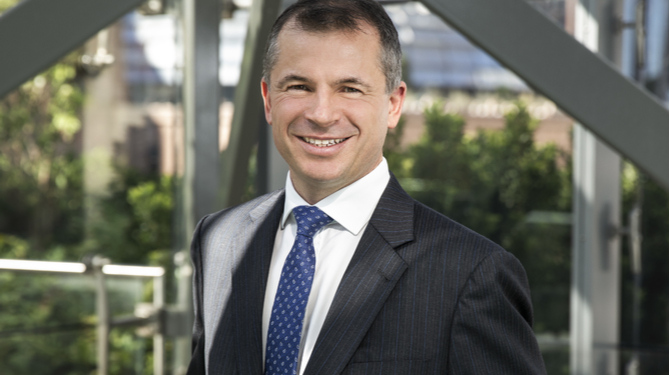Sign up for our free daily newsletter
YOUR PRIVACY - PLEASE READ CAREFULLY DATA PROTECTION STATEMENT
Below we explain how we will communicate with you. We set out how we use your data in our Privacy Policy.
Global City Media, and its associated brands will use the lawful basis of legitimate interests to use
the
contact details you have supplied to contact you regarding our publications, events, training,
reader
research, and other relevant information. We will always give you the option to opt out of our
marketing.
By clicking submit, you confirm that you understand and accept the Terms & Conditions and Privacy Policy
Ashurst is aiming to become a £1bn firm next year after a strong performance across all its regions and industries fuelled a 9% rise in turnover to £961m in the year ended 30 April 2024.
The increase is more or less in line with the 10% growth the Anglo-Australian firm reported last year. Meantime profits per equity partner jumped 14% to £1.3m, surpassing the previous record of £1.175m the firm reported in 2022 before PEP dipped marginally to £1.170m in FY23 amid high inflation and rising costs.
The results see Ashurst keep pace with other UK-based international firms like HFW and Osborne Clarke that have reported their numbers already and grew turnover by 11.4% and 19% respectively against 8.8% and 11% gains in PEP.
Ashurst, which has about 1,600 fee earners across 31 offices globally, said it had achieved average revenue growth of 8% each year over the past eight years and average profit growth of 10% each year over the same period.
Paul Jenkins, Ashurst’s global CEO, said the results reflected the successful execution of the firm’s 2027 strategy.
“We’re centred on our priority industries, practice areas and markets, combined with the delivery of integrated solutions that bring together teams across legal and consulting services with our NewLaw capability. This is a trajectory that really works for our business,” he said. “Pleasingly, we are budgeting to have our first year of revenue above £1bn in our financial year ending 30 April 2025.”
The firm reported strong performance across all regions, with the UK, US and Middle East achieving revenue growth of 13%, 18% and 17% respectively; the firm’s US presence was strengthened with double-digit growth from its global markets and projects teams.
Ashurst said the Asia-Pacific region had also performed well, with “significant growth” in Singapore and a solid year in Australia, while in Continental Europe, Italy and France were standout jurisdictions.
Ashurst’s revenue was driven by its six key industries, which accounted for more than 85% of the total revenue. Energy and resources was the standout performer, growing revenue by 23%, while disputes, investigations and advisory reported a 10% increase and projects and energy transition an 11% increase. Corporate saw double-digit growth in several regions, including Korea, Australia, Singapore, France, Italy and the UK, while the finance, funds and restructuring division saw 10% growth across Asia-Pacific and double-digit growth for investment funds.
Meantime Ashurst’s risk advisory business grew by 47%, while its NewLaw arm, Ashurst Advance, upped revenue 16%.
In February the firm expanded its NewLaw offering with the launch of a global delivery centre in Krakow, Poland – its third hub after Glasgow and Brisbane – to provide support across managed services, due diligence, disputes and contract management.
Ashurst was also one of a number of international firms to be granted a licence by the Saudi Ministry of Justice last year following changes to the rules governing foreign law firms in the Kingdom. Like many of its rivals Ashurst had a longstanding arrangement with a local firm but launched a new entity – Ashurst Law Firm – to continue to advise clients, particularly across energy, projects and infrastructure and real estate.
Standout work for the UK team over the course of the year included advising Tritax Big Box REIT on its £3.9bn all-share public M&A takeover of UK Commercial Property REIT and continuing to advise the UK Government on the Carbon Capture Usage & Storage and Low Carbon Hydrogen programmes.
Meantime in Australia the firm advised 7-Eleven Australia on its AU$1.7bn sale to 7-Eleven International, while a cross-border team acted for General Atlantic on its entry into a definitive agreement to acquire Actis, to create a $96bn diversified global investor.
In terms of diversity, Ashurst said it had made progress toward its 40/40/20 global gender target, with 34% women partners and 32% women in senior leadership. The firm also set UK ethnicity targets of 15% for partners and senior business services leaders, of whom 6% will be Black, with current figures at 9.1% ethnically diverse and 1.4% Black. The firm also recorded more than 65,500 hours of pro bono work on 683 matters.
Jenkins added: “As we look ahead, we are confident that we have a clear vision for the future, underpinned by our 2027 strategy. This follows a similar focus with our 2019 strategy and 2023 strategy, which in each case has led to our strong growth trajectory over the last eight years. Our clients, people and communities will always be our primary focus and both strengthening and finding new ways for closer collaboration will help us deliver our goals.”
Email your news and story ideas to: [email protected]











